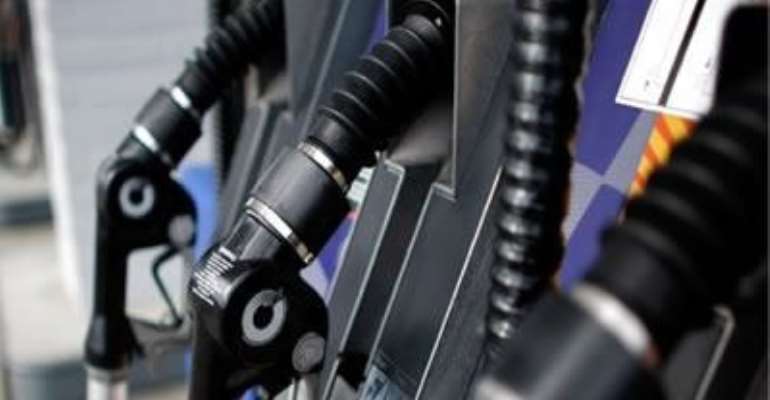Nigerian Fuel Shortage part of Chess Match against Buhari

The ongoing fuel shortages in Nigeria are part of a grand chess match that is building against the newly elected APC opposition administration, purportedly to be led by General Buhari, the President-elect and standard bearer of the APC opposition party. Contrary to the delusional rhetoric and stated mission of the opposition to route corruption in the petroleum industry as the foremost policy, the entrenched interest are pushing back in force. They are no longer cooperating with the lame-duck Goodluck Jonathan administration and are dug-into the trenches awaiting the expected onslaught of the incoming Buhari-led APC administration. As I have said repeatedly (SEE:kurangaandassociates.wordpress.com/2015/04/06/averting-economic-crisis-the-first-100-days/); the first move of the incoming Buhari-led administration should be to implement massive increase in progressive taxes and fees aimed at the nations affluent. The increasing fiscal burden on the country should be paid by the nation’s elite who effectively pay one of the lowest tax rates on earth! To make matters worse, it is estimated that 80% of the country chronically dodges taxes. Unlike the petroleum industry and oil-marketers, that are dug-in deep, and ready for battle, the nation’s elite are not ready to block the move to require them to pay the fair share in taxes. Once the increased expense of running government, paying salaries, oil-marketers, and defending the national currency are borne by the nations elite, they will collectively put pressure on oil-marketers to reform their corrupt practices, because it will be costing them personally.
There are a series of taxation measures that General Buhari can push for that would achieve this objective, most of them target the lifestyle of Nigeria’s elite:
- Mansion Taxes – a. houses and Flats that are valued in the top 5% in the country (provisions for 80% of these taxes to be passed on to tenants where the properties are leased), b. owners of multiple houses, c. owners of houses abroad as well as property in Nigeria, d. more than 2 household servants.
- Luxury Vehicle Taxes – a. A personal vehicle valued in the top 5% in the country (this includes firms that purchase luxury vehicles for employees and owners), b. owners of more than 1 vehicle per household, c. owners of yachts and other leisure aquatic vehicles, d. owners of luxury private aircraft.
- Additional income taxes on incomes over 10 million naira, deducted by employer.
- Capital gains taxes on owners of companies, properties, and the shareholders of companies, including SMEs that employ more persons than the registered owner.
- Government contractor taxes- an additional slight tax on the profits or earnings of any company or individual that has done business with the government in the previous 3 years.
- Inheritance Taxes – on estates valued over 10 million naira.
- Luxury Goods Taxes – luxury taxes on imported luxury consumer goods, wine, champagne, beverages, foreign brand foods, luxury textiles, satellite broadcasts, foreign film screenings, business class and first class travel tickets, and other luxury products as determined.
All persons in Nigeria, defined as elites either by net worth or by falling under one of the first 6 taxation measures, either elected official or not, must individually declare their ownership status of properties, salaries, and shares of companies. The declarations of all public officials, both past and present should be a matter of public record. Failure to declare and report ownership status and comply with taxation measures should result in rising penalties for repeat offenders. As it stands, compliance with Nigeria’s existing taxation measures is very limited. However enforcing these elite taxation measures will only target around 5 million individuals and several thousand companies which will make it easier to ensure immediate compliance.
In the first 100 days, President-elect, General Buhari needs to focus his efforts on drawing the Nigerian elite into his battle to rid the nation of corruption and free itself from the entrenched corrupt interests in the petroleum industry. The only way to do this is to require them to pay more into the system in order to stabilize the economy and bring things back to normal. Once he has done this, he will have the full support of society to wage and all-out war against corruption and mismanagement, which will take a while to unravel and clear out. While doing this, the masses do not have to suffer as long as the elite finally begin to contribute their fair share to offset the financial shortages that the country is currently facing. Foreign interference will encourage and push for greater borrowing, but in a nation where 80% of society dodge taxes, and elites are paying less than 3%, there are far superior avenues to alleviate the fiscal strains on the country that sinking it further into unnecessary debts.
Kuranga and Associates Limited is an investment management advisory firm and an asset manager with a principle practice area of Africa. To learn more about Kuranga and Associates go to www.kaglobal.net . © Copyright 2014 David Kuranga. All rights reserved. This material may not be published, broadcast, rewritten or redistributed.
